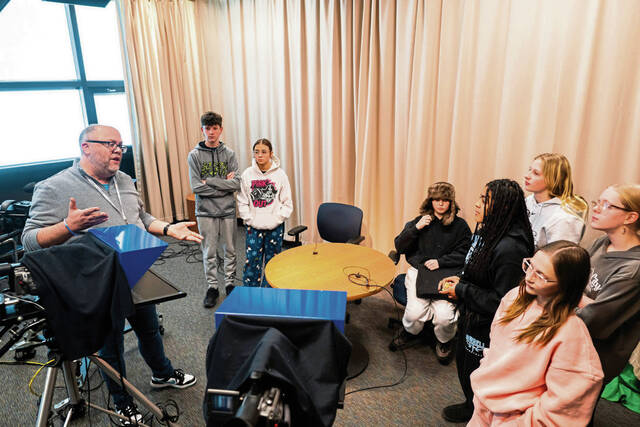The Kiski Area School Board and the district’s teachers union have ratified a new five-year contract.
Under the agreement, teachers will receive a total salary pool increase of 3.35% each year, according to Kiski Area Business Manager Amy Simmons. The funds from this increase are distributed based on each teacher’s placement on the salary scale.
The teachers union decides how to disburse the funds among teachers at different steps/years on the scale, Simmons said.
The current starting salary for a teacher with a bachelor’s degree in Kiski Area is $53,900. That salary would rise to $54,275 in the first year of the contract and grow to $60,387 in the fifth year.
A teacher with a bachelor’s degree at the top end of the pay scale at Kiski Area is paid $86,291. Under the new contract, that teacher would be paid $87,641 in the first year of the new contract and $95,651 in the fifth year.
Kiski Area Superintendent Misty Slavic said on the issue of health care, teachers contribute between 7.5% and 10.5% of the cost, depending on the plan chosen for the first two years of the contract.
Those choosing a plan to cover an entire family would pay the higher percentage.
The premium contributions in the final three years of the agreement would be between 7.75% and 10.75% of the cost.
Also part of the contract is a restructuring of the supplemental contracts for teachers, Slavic said. She said that was designed to make salaries more equitable for all positions in sports and student activities.
It also establishes department heads in subjects such as English and math at all grade levels.
The board approved the contract in a 6-0 vote with Directors Ronald Coleman, Nicole Kamer and Harlan Jervis absent.
Joe Steeves, teachers union president, thanked the board for its work in reaching the agreement, saying it was the earliest he could remember settling a contract in the more than 20 years he has been in the district.
The current teachers contract expires Aug. 24.
Board member Michelle Schmidt, the board negotiating team’s leader, said economic issues were not a major hurdle in the negotiations.
Instead, she pointed to the memorandum of agreement the board and the union negotiated, in conjunction with the contract, regarding the establishment of the district’s own cyberschool as being more challenging.
“It wasn’t even a problem. It was a matter of working out the details to see what it would look like for the teachers,” Schmidt said.
As for the negotiations overall, she said, “It seemed to go really smoothly.”
Tom Yerace is a freelance writer. Staff writer Joyce Hanz contributed to this report.








